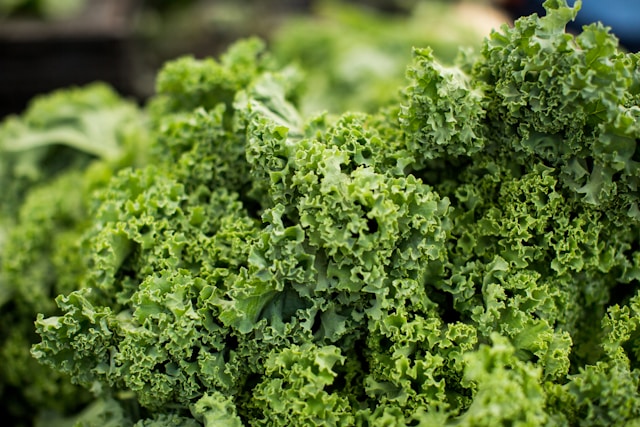Unveiling Carbohydrates: Healthy vs Unhealthy
December 14, 2016
In some recent decades, there is a lot of allegation against carbohydrates, mainly for weight gain, that they are equally responsible as fats are for adding unwanted pounds to our body. Above that, some diets like Atkins and Paleo took a harsh stance against carbs and became almost successful in eliminating this nutrient from people’s diet. However, it should be thought upon if carbs are really harmful. If we study in deep, we will come to know that carbs are not harmful, but are useful and essential for keeping us healthy. Earth’s Wisdom wants to throw light on the carbohydrate facts.
Are Carbohydrates Healthy or Unhealthy?
Just like there are two types of fats – healthy and unhealthy, carbohydrates too can be classified as healthy and unhealthy. Actually they are classified as simple and complex, in which simple carbs are unhealthy while complex carbs are healthy. Therefore, henceforth when you are tempted to eat carbs, choose the complex ones and you will in fact become healthy and lightweight!
Simple and Complex Carbohydrates
Let’s define simple and complex carbs!
Simple Carbs: Simple carbs are starches and sugars that are refined and are stripped of their natural nutrients and fiber.
Complex Carbs: Carbohydrates that are not processed and are in their original form in the foods which contain them are complex carbs.
Foods like vegetables, fruits and legumes contain complex carbs.
Roles of Simple and Complex Carbs
Complex carbs are full of nutrients while simple carbs are devoid of nutrients. You can get complex carbs through whole grains, legumes, veggies and fruits, which are rich in other nutrients too like antioxidants, vitamins, minerals and fiber.
Simple carbs on the other hand contain “empty” calories, which means that they have only calories and no nutrition.
For example, a grain contains germ, endosperm and bran. While endosperm is made fully of starch, germ and bran contain important nutrients like polyunsaturated fats, vitamins, minerals, antioxidants, fiber and essential fatty acids. While refining the grain, the highly healthful germ and bran are removed and what is left is the endosperm which is almost devoid of nutrition.
Same is the case with fruits and vegetables. When they are eaten whole, they offer only a slight amount of fructose, but a rich dose of fiber, vitamins and minerals. But when they are processed and made into sugary beverages, jams, jellies and candies or cookies, they lose all the nutrients and are left with a lot of unhealthy refined sugar.
Health Benefits of Complex Carbohydrates
Regulate Blood Sugar Levels: Simple carbs get digested quickly and lead to a sudden spike of blood sugar. The sugar spike stimulates pancreas to secrete large doses of insulin which normally causes a blood sugar “crash”, which makes you hungry and crave for sugar soon after you eat.
On the other hand, complex carbs, rich in fiber, don’t break down easily and so, keep levels of blood sugar stable. Also, as they take longer to get digested, they keep providing energy sustainably and you feel full for a longer time.
Reduce Risk of Chronic Diseases: Chronic diseases like heart disease and diabetes are less likely to occur when you consume complex carbs. This is because complex carbs are high in fiber, antioxidants, vitamins and minerals and phytochemicals, all of which have an important role in preventing these diseases.
Studies have also shown that complex carbs may reduce bad LDL cholesterol and increase good HDL cholesterol.
Increases Health of Digestive System: Billions of useful bacteria exist in our gut and are called GI microflora. These keep our gut healthy and allow digestive functions run normally. Complex carbs contain soluble fibers that feed these beneficial bacteria and let them flourish. They also help these bacteria to create certain nutrients like short-chain fatty acids which too are useful for digestive health.
Bad Effects of Simple Carbs
The effects of simple carbs are exactly opposite to that of complex carbs. They promote overeating, cause blood sugar spikes, elevate triglyceride levels (leading to type 2 diabetes and heart disease), and increase the risk of these diseases.
All in all, if you want to be healthy, you should not cut down carbs, but should cut down the ‘bad’ simple carbs! Eat carbs in the form of whole wheat bread, whole brown rice, raw fruits and veggies and legumes, and enjoy taste as well as health.
Conclusion
In conclusion, understanding the difference between healthy and unhealthy carbohydrates can help you make informed dietary choices and improve your overall health. While unhealthy carbs can lead to weight gain, inflammation, and chronic diseases, healthy carbs like whole grains, fruits, and vegetables can provide essential nutrients and fiber. By choosing the right carbs to fuel your body, you can optimize your health and well-being. So, make sure to prioritize healthy carbs in your diet and limit your intake of unhealthy carbs to achieve a balanced and nutritious diet.
Leave a comment
Comments will be approved before showing up.
Also in Wisdom News

The Importance of Vitamin K2: Unlocking its Role in Health and Wellness
September 22, 2024

The Importance of Omega-3 Fatty Acids: A Comprehensive Review of Their Effects on the Body
August 02, 2024

The Benefits of Mindfulness Meditation for Mental Health
July 12, 2024
Disclaimer: These statements have not been evaluated by the FDA. These products are not intended to diagnose, treat, cure or prevent any disease.
© 2026 Earth's Wisdom®. All Rights Reserved.




